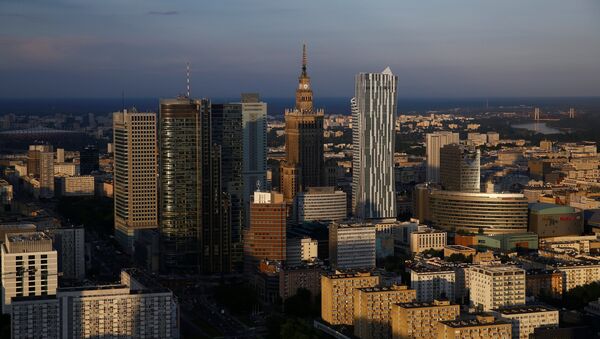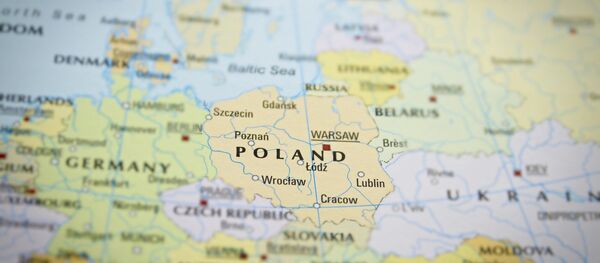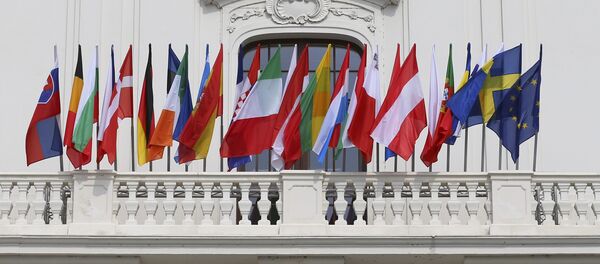Jaroslaw Kaczynski, head of Poland’s ruling conservative Law and Justice (PiS) party and a long-time political foe of Tusk has made it clear that he doesn’t want Tusk to be re-elected.
The politician has recently said that Tusk "is in favor of solutions that are extremely harmful to Poland."
Kaczynski explained that Tusk was in favor of financial penalties for European Union member states that do not accept a quota of refugees, a move which the Polish government strongly opposes.
"We simply cannot support such a person," Kaczynski added.
Donald Tusk himself, however, said that he would like to stay on as president of the European Council.
"After talking to many leaders who expressed their support … I am ready to continue my work. But that will depend on the decision of all heads of states and governments," Tusk told reporters at the informal EU summit in Malta on Friday.
Ahead of the summit, the president of the European Council sent an open letter to the 27 member states of the European Union (without Britain) where he outlined the challenges currently facing the European Union, calling them "more dangerous than ever before in the time since the signature of the Treaty of Rome" (signed in 1957, the Treaty established the European Economic Community).
"In his letter, Donald Tusk has outlined very realistically, without hiding anything, the problems currently experienced by the European Union and even the whole world," he told Sputnik.
The polish politician recalled the threats to the EU identified by Tusk, namely those external ones, were related to the new geopolitical situation in the world and around Europe.
"An increasingly, let us call it, assertive China, especially on the seas, Russia's aggressive policy towards Ukraine and its neighbors, wars, terror and anarchy in the Middle East and in Africa, with radical Islam playing a major role, as well as worrying declarations by the new American administration all make our future highly unpredictable," reads Tusk's letter.
"For the first time in our history, in an increasingly multi-polar external world, so many are becoming openly anti-European, or Eurosceptic at best. Particularly the change in Washington puts the European Union in a difficult situation; with the new administration seeming to put into question the last 70 years of American foreign policy," it says.
"The second threat, an internal one, is connected with the rise in anti-EU, nationalist, and increasingly xenophobic sentiment in the EU itself. National egoism is also becoming an attractive alternative to integration. In addition, centrifugal tendencies feed on mistakes made by those, for whom ideology and institutions have become more important than the interests and emotions of the people," it elaborates.
All the above, Tadeusz Iwinski said, paints a bigger picture: that the European Union is living through its worst crisis since the Cold War.
"The EU is really in a crisis and the challenges it is currently facing are among the most serious since the Cold War. There is no way to expand the EU further, and the Union is running the risk of splitting into two groups of countries," he told Sputnik.
He further explained that as the 60th anniversary of the singing of the Treaty of Rome nears, the six long-standing signatories to the Treaty (Belgium, France, the Federal Republic of Germany (West Germany), Italy, Luxembourg and the Netherlands) and some Scandinavian countries which use the Euro are calling for more integration, while the remaining countries, including Poland, won't find themselves at the head of the new Europe.
Hence, Merkel's visit to Poland is crucial, not only for bilateral relations between the two countries, but for the future of Europe and the entire world.
With regards to Merkel's support for Donald Tusk, the politician noted that three years ago, when the former Polish prime minister took on the role in December 2014, replacing the first person to hold the job, Belgium’s Herman Van Rompuy, his candidacy came as a surprise to many. Without the support of Germany, he would have never taken the post.
A final decision on the new president of the European Council will likely be made as early as next month at another summit of EU leaders, this time in Brussels, on March 9 and 10. Hence Tadeusz Iwinski says that Tusk has a high chance of being re-elected even though the Polish government is rather skeptical.
The only person, he said, who could threaten Tusk's re-election is outgoing French President Francois Hollande, who has indicated that he would like to be a candidate for the presidency of the European Council.
However he added that Donald Tusk's chances seem to be higher than those of President Hollande, even without the support of the Polish government.
A key moment for Tusk will be the meeting of German Chancellor Angela Merkel with Polish Prime Minister Beata Szydlo, he therefore suggested.
Additionally, the two countries have recently marked the 25th anniversary of the German-Polish Treaty of Good Neighborship.
However, the relations between Germany and Poland have nevertheless deteriorated since the so-called ‘Weimar Triangle’ of Germany, France and Poland de-facto stopped functioning. The upcoming visit of the German chancellor should therefore contribute to the improvement of these relations, Iwinski concluded.
Never miss a story again — sign up to our Telegram channel and we'll keep you up to speed!






